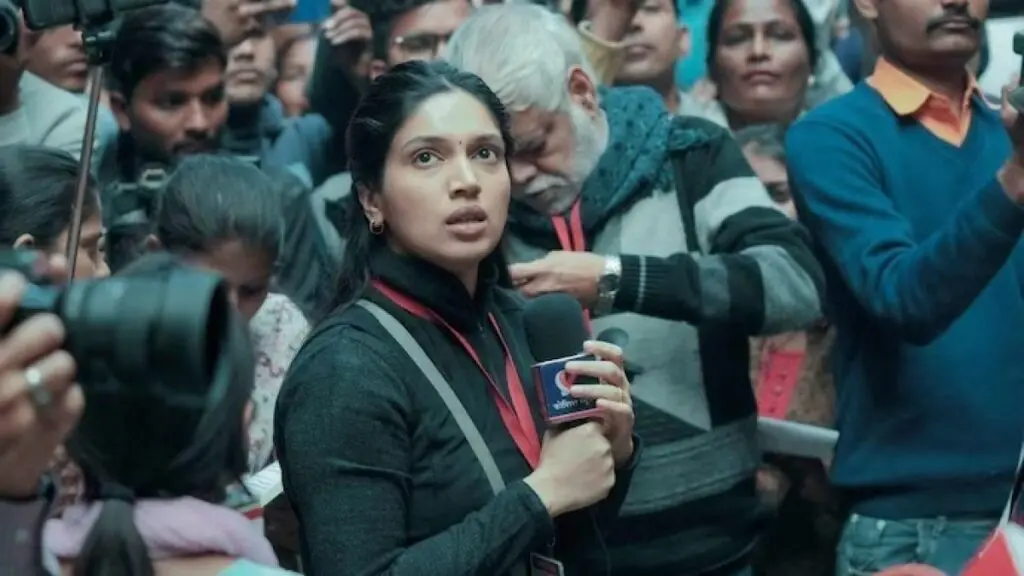Summary
While preachy at times with uneven pacing, this is still a harrowing drama about fighting against apathy and corruption.
Netflix India’s newest original production Bhakshak was directed by Pulkit, who wrote the script with Jyotsana Nath. The two previously collaborated on 2017’s Marooned. Loosely based on a real story of horrific abuse in the town of Muzaffarpur, the movie follows a small-time journalist’s quest to shed light on a situation local politicians would prefer to keep buried.
The film’s opening scene sets the tone for the rest of the harrowing visual experience. We watch two men murdering an innocent girl after one of them causes her unimaginable pain for refusing to have sex with him. When they take her body to another accomplice to give her the “last rites” and bury the evidence, it’s revealed neither murderer knew the name of their orphaned victim.
Vaishali Singh (Bhumi Pednekar) is a struggling journalist who runs a small news channel in Patna with her friend and cameraman Bhaskar Sinha (Sanjay Mishra). One night her somewhat irritating source, Gupta, wakes her up in the dead of night and drops a disturbing report into her hands. The document alleges horrific abuse happening to the young residents at a government-funded shelter for underage girls in nearby Munawwarpur. It seems the audit was conducted by government representatives only to be ignored.
The highly connected Bansi Sahu (Aditya Srivastav), who also runs the area’s newspapers, owns the welfare shelter in question. Not only is Bansi aware of what’s happening behind closed doors, but he regularly partakes in the horrific abuse of the young girls in his care. When Vaishali starts investigating the allegations, Bansi wastes no time threatening her to try and stop the story from getting out.
Even Vaishali’s family is against the young woman taking on this case. Her husband, Arvind (Surya Sharma), would rather she focused more on caring for him and less on trying to challenge the status quo. The rest of her family thinks she should be busying herself with making babies.
The movie follows the typical David v. Goliath trope where one small idealist takes on a system forged in misogyny, corruption, and indifference. Vaishali is willing to risk everything (and everybody) in her life for a chance to bring abusers to justice. Her resolve never falters despite the dangers she faces along the way. Unlike real life, watching such an inspirational character on screen is cathartic. As movie-goers, we want a nicely tied-up story where the good guy (woman, in this case) wins against all odds.
However, by giving us the perfectly heroic protagonist, the movie ignores a few too many plot holes and seems content to preach to the viewer instead of showing its worthwhile story. The dialogue rarely feels natural, and most of the characters are one-dimensional.
As for the victims, it’s a shame the film portrays them as a collective with no individual stories worth telling. The writers gave more character development to Vaishali’s irritating brother-in-law than to the young girls she spent the entire runtime fighting for.
Despite its flaws, this is a movie worth watching for its portrayal of current issues of violence against women. With its dark subject matter and compelling story, Bhakshak can be quite difficult to digest. While the abuse experienced by the shelter’s victim is (thankfully) never explicitly shown, hearing about it and knowing it has a real-life basis is enough to make the most casual viewers feel squeamish.
RELATED:




